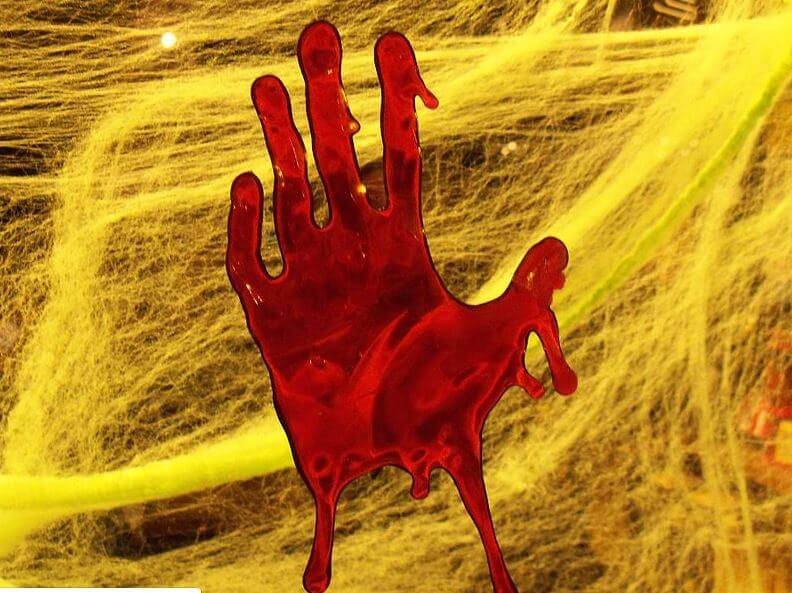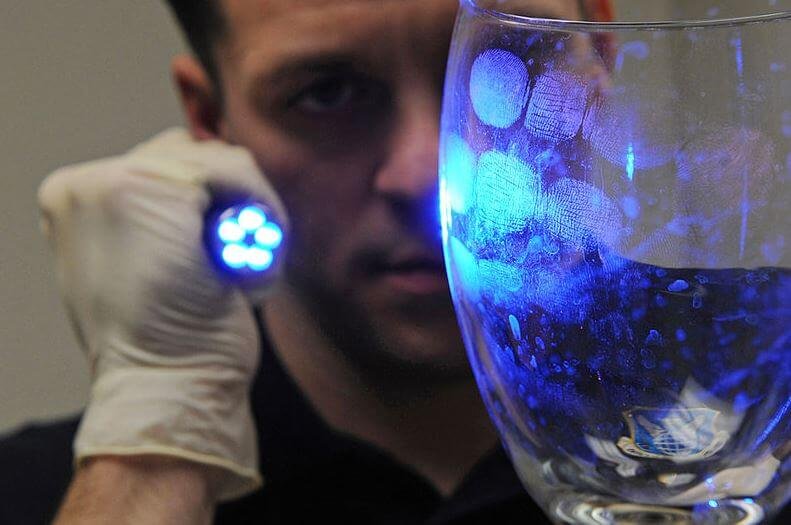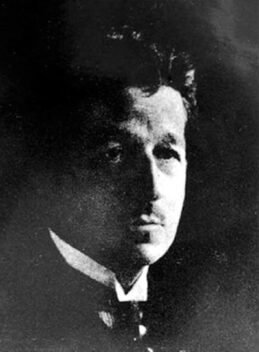Edmond Locard (December 13, 1877, to April 04, 1966) was born in the city of Lyon, France, situated about 300 miles southeast of Paris. He was a French criminologist and a pioneer in forensic science popularly known as the ”Sherlock Holmes of France”.
Edmond Locard introduced the fundamental principle of forensic science ‘’every contact leaves a trace’’ today become known as Locard’s exchange principle.
In 1902, he had done a Ph.D. degree in medicine in Lyon, France and began his scientific professional career by assisting French medical doctor Alexandre Lacassagne (1844-1921) who was a physician, Professor and criminologist and often known as the father of modern forensic medicine.
Locard was interested in science and its relation to the law to solve criminal cases. His thesis was entitled ‘’La médecine légale sous le Grand Roy” (Legal Medicine under the Great King).
Education and Scientific Career:
Locard’s educational background was exact to their passion to develop his scientific carrier and to realize his dreams. In the year of 1902, he studied medicine at Lyon, France. He was also interested in law and obtained a degree of law from Lyon in 1907.
After that, he becomes an assistant to the French medical doctor Alexandre Lacassagne and held on that post until 1910. He was a doctor and an attorney as well with a great interest in the study of science and their relation with criminal law to solve the crime cases.
In 1908, he started a journey throughout Europe and America to visit various crime laboratories and to meet up with different scientists. He visited the police departments of Italy, Germany and Vienna.
He also went to America and visited the police department of Chicago and New York. He finally visited and meet to the Swiss criminalist Rodolphe Archibale Reiss in Lausanne, Switzerland.

In the same year of 1908, he spent time in Paris under the guidance of the French police officer and biometric researcher Alphonse Bertillon (1853-1914) who introduced the anthropological techniques of anthropometry to classify peoples based on their physical measurements.
After his world tour, he comes back to Lyon in 1910 and to open the world’s first criminal investigation lab in Lyon, France. The police department granted Locard the opportunity to establish an investigation laboratory to analyze evidence of the crime scene based on science and logic.
During WW1 he worked as a medical examiner and this examination was fundamentally based on the science and physical pieces of evidence to identify the cause and location of death by looking at their stain and dirt evidence left on soldier’s uniform. His investigative work founded on scientific logic, Analytical thought, facts and objectivity.
Only after two years, the laboratory was officially recognized by the Lyon Police Department then it was the world’s first police crime laboratory.
In minimum time, the laboratory received world fame and recognition and many renowned criminalists obtained the knowledge and learned scientific techniques under the guidance and supervision of Edmon Locard.
He was a mentor of many veteran criminologists of those days and one of the Locard disciples was Swedish criminalists Harry Soderman who was a great criminalist.
In 1929, Locard established the International Academy of Criminalists in Lausanne, Switzerland with the collaboration of Swiss criminalist Marc Bischoff, Dutch criminalist Van Ledden Hulsebosch, an Austrian criminalist Siegfried Trkel and German criminalist Georg Popp but unfortunately, the academy becomes collapsed because of WW11 sabotage.
The number of other laboratories becomes established all over the country on the Locard model and even after WW11, many other crime identification labs were created in many other countries based on the Locard model.
Locard was a fundamental pillar and driving force behind the prosperity and advancement of modern science and police techniques to easily trace the perpetrator through scientific pieces of evidence.
He died on May 4, 1966, at the age of 88 in Lyon, France.
Legacy and Scientific Work:
Throughout his life, he published over more than forty works in the language of French, German, English and Spanish. He produced undoubtedly the most famous forensic work is the seven volumes entitled ‘’ Traité de Criminalistique (Treaty of Criminalistics) which still referenced daily.
In this famous book, Locard discussed the exchange principle today known as Locard exchange principle. He introduced the basic line of that principle and claimed that ‘’every contact leaves a trace’’ which is today known as the fundamental pillar of forensic science because the criminal left some trace evidence on the time of the crime.
He also pioneered introducing the 12-point fingerprint identification method and these points are also known as ‘’ minutiae points’’. These points vary from country to country for criminal detection, which is still used today with full of reliability.

The young Belgian writer George Joseph Simenon was a well-known detective writer. He was a disciple of Locard and attended some lectures in between the 1919 and 1920.
Locard Exchange Principle:
Locard performed a massive and immense contribution to the field of forensic science. His most important and famous contribution is today known as the ‘’Locard exchange principle’’.
Locard stated that “Toute action de l’homme, et a fortiori, l’action violent qu’est un crime, ne peut pas se dérouler sans laisser quelque marque.” Translation identifies the words it means’’ any action of an individual or criminal and any kind of violation cannot take place without leaving any trace’’. The whole exchange principle is based on that sentence.

Harry SÖderman, a Swedish police officer and criminalist later wrote of Edmond Locard, “He put the analysis of handwriting on a firmer footing, systematized the analysis of the dust in the clothes of suspects, invented a modified method of analyzing bloodstains, and invented poroscopy, whereby the pores in the papillary ridges of fingerprints are used as a means of identification”.
Timeline:
1877: Born in the City of Lyon, France
1902: Obtained a Doctoral degree in medicine
1907: Locard passed the bar examination
1908: Embarked on a journey all over the world
1910: Establishment of crime scene investigation laboratory
1912: Laboratory was recognized by the Lyon Police, France
1929: Locard founded the International Academy of Criminalistics
Between 1931 and 1935: Published seven volumes of the Traité de criminastique (Treaty of Criminalistics)
1966: He died at the age of 88 in Lyon, France
2012: Nominated to the French forensic science hall of fame
Edmond Locard Quote:
Quotes About Edmond Locard:

Attractive section of content. I just stumbled upon your website and in accession capital to assert that I acquire in fact enjoyed account your blog posts. Any way I’ll be subscribing to your augment and even I achievement you access consistently quickly.
I’m really impressed with your writing skills and also with the layout on your blog. Is this a paid theme or did you modify it yourself? Anyway keep up the nice quality writing, it is rare to see a nice blog like this one today..
Whhat a suff of un-ambiguity aand preservenss of precious knowledge
on the topic of unppredicted emotions.
Really instructive and excellent complex body part of articles, now that’s user genial (:.
I simply could not depart your site prior to suggesting that I really loved the usual info a person provide in your guests? Is gonna be again often to inspect new posts.
Very interesting info!Perfect just what I was searching for!
I truly enjoy studying on this site, it contains excellent posts.
Great work! This is the type of information that are meant to be shared around the internet. Shame on Google for now not positioning this publish upper! Come on over and visit my website . Thank you =)
There is clearly a bundle to know about this. I assume you made some nice points in features also.
Greetings! Very helpful advice on this article! It is the little changes that make the biggest changes. Thanks a lot for sharing!
After I originally commented I clicked the -Notify me when new comments are added- checkbox and now each time a comment is added I get 4 emails with the identical comment. Is there any method you possibly can take away me from that service? Thanks!
Hello! This post could not be written any better! Reading this post reminds me of my previous room mate! He always kept talking about this. I will forward this write-up to him. Fairly certain he will have a good read. Many thanks for sharing!
I¦ve been exploring for a little bit for any high quality articles or weblog posts in this sort of space . Exploring in Yahoo I at last stumbled upon this site. Studying this info So i¦m happy to show that I’ve an incredibly good uncanny feeling I discovered exactly what I needed. I so much for sure will make sure to don¦t put out of your mind this web site and give it a look regularly.
Some genuinely nice and useful information on this web site, besides I believe the style has got wonderful features.
I will immediately snatch your rss as I can not to find your e-mail subscription link or newsletter service. Do you’ve any? Please permit me know in order that I may just subscribe. Thanks.
You really make it seem really easy with your presentation however I in finding this topic to be really one thing which I believe I might by no means understand. It kind of feels too complex and extremely broad for me. I am having a look ahead in your next publish, I will attempt to get the grasp of it!
Hello! This is my 1st comment here so I just wanted to give a quick shout out and say I genuinely enjoy reading your posts. Can you recommend any other blogs/websites/forums that cover the same subjects? Thank you so much!